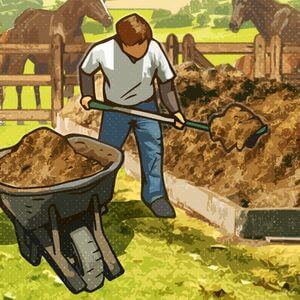Clostridium tetani

Watch out for rose thorns
Clostridium tetani is a Gram-positive bacillus that exhibits a spore1 (a form of resistance). Clostridium tetani is the agent of tetanus. Like other species of Clostridium, it only grows in the absence of oxygen. However, it is widely present in the soil and in the stools of animals (horses, in particular). Contamination usually occurs through a soiled wound or as a result of a simple sting from a rose, if rose bushes were fertilized with manure.
Tetanus
After a short incubation period, the toxins of Clostridium tetani will induce muscle contractions which may occur at the slightest noise or during stimulation by light. The evolution is relatively fast, in about 7 days. However, this disease can be dangerous since the spasms2 can not only affect the muscles of the face (trismus3) or the muscles of the back (opisthotonos4) but also the respiratory muscles.


A very useful vaccine
There is a tetanus vaccine that is widely recommended and a booster should be given in case of injury if the last dose of the vaccine was more than ten years old.

An infrequent family
In this family, there are many other species dangerous to humans, including, for example, Clostridium perfringens which can cause particularly severe gangrene5, as well as Clostridium botulinum which can cause paralysis following food poisoning (botulism6). In addition, a decidedly infrequent cousin of the same family, Clostridoides difficile, is the agent of post-antibiotic colitis7.
